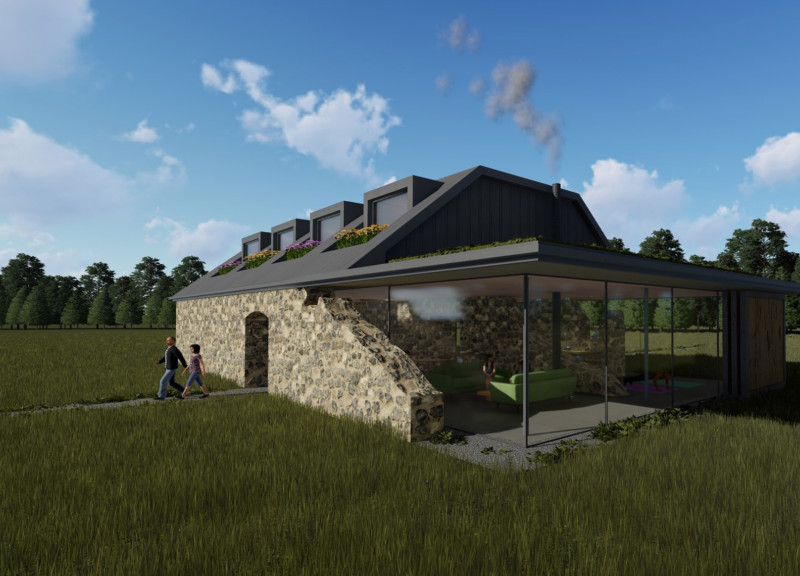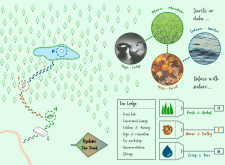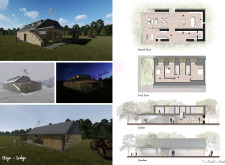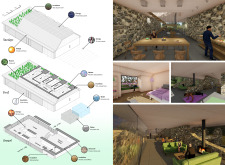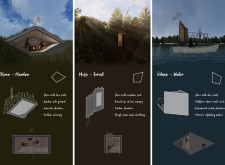5 key facts about this project
Maaja - Lodge is situated in a landscape filled with meadows, forests, and water. The lodge aims to enhance the connection between visitors and nature while promoting communal living and wellness. The design brings together indoor and outdoor spaces, creating an experience that prioritizes sustainability and healthy living.
Concept and Functionality
At the heart of Maaja - Lodge is the idea of fostering social interaction and relaxation. The Ozolini Tea Trail is an important feature of the project. It includes various spaces such as a trail hub, communal lounge, kitchen and dining areas, yoga rooms, tea workshops, accommodation, and storage. Each space is designed to cater to both individual needs and community activities, providing visitors with a rich experience.
Sustainability Features
The lodge emphasizes sustainability by incorporating energy-efficient systems. The living roof provides insulation while supporting local wildlife. Canopy overhangs help reduce the heat from the sun, and triple-glazed windows enhance energy efficiency throughout the building. Additional energy systems like biomass stoves, photovoltaic panels, and air source pumps further decrease reliance on non-renewable energy sources, contributing to environmentally responsible practices.
Structural Elements and Site Design
Accommodation options are designed for comfort and practicality. Relaxation areas are arranged to allow guests to unwind after exploring the outdoors. The communal kitchen and dining areas promote shared meals, encouraging social connections. Structural features such as stoves with seating foster interaction. Sunken areas provide natural cooling, and elevated parts of the lodge utilize local timber for building materials.
The site design strengthens the lodge's relationship with its environment through platforms above water levels, offering guests pleasant views. Mirrors integrated into the design reflect surrounding vegetation, expanding the visual space and reinforcing the connection between the lodge and nature.


